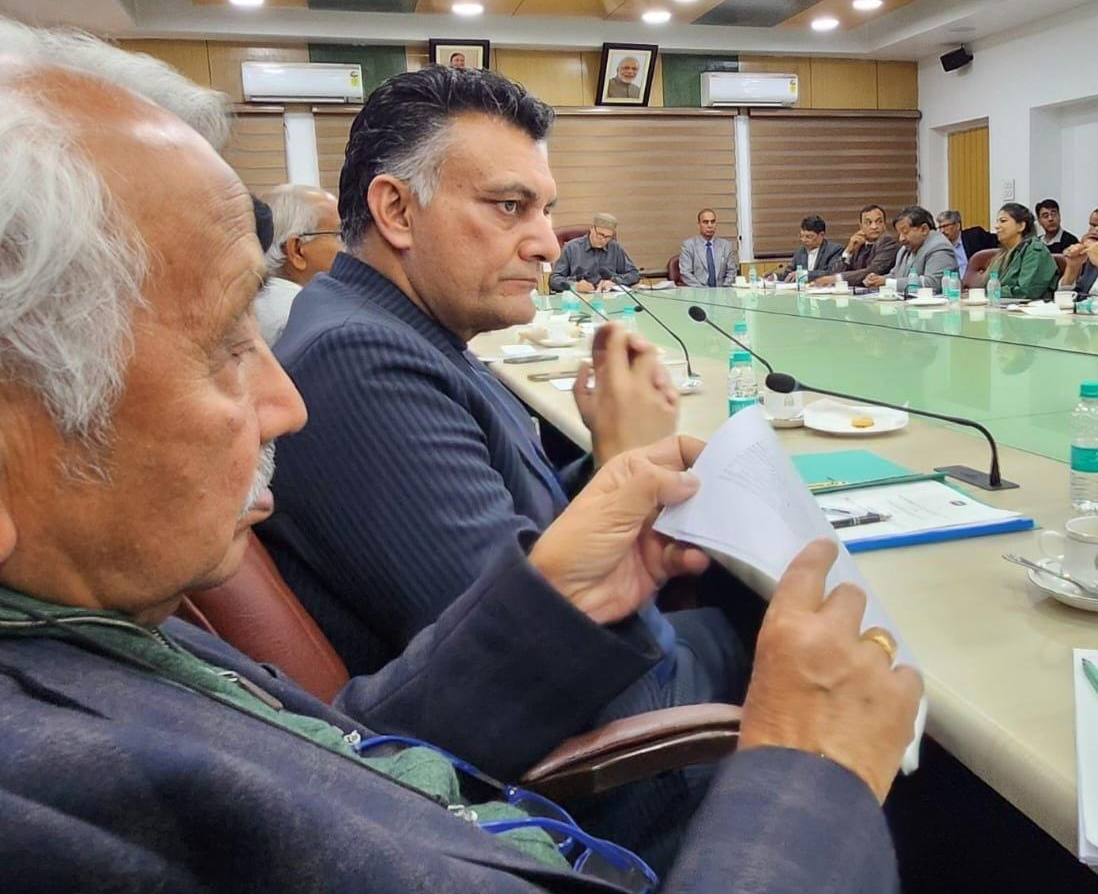 Early Times Report Early Times Report
JAMMU, Feb 8: Chief Minister of Jammu & Kashmir, Omar Abdullah, emphasized the immense potential of Jammu as a hub for religious tourism. He assured that efforts would be made to fully tap into this opportunity by promoting diverse pilgrimage sites and encouraging Vaishno Devi pilgrims to explore other religious and tourist destinations within the region.
The statement came in response to demands raised by the PHD Chamber of Commerce & Industry (PHDCCI), Jammu Region Chapter, led by its Chair Rakesh Wazir, who is also the President of the Hotel & Restaurant Association, Katra. Wazir was accompanied by Shyam Lal Kesar, Executive Member, PHDCCI & Chairman, HRAK, and Kartik Partap Singh, Deputy Resident Director, PHDCCI Jammu.
Rakesh Wazir, while expressing gratitude to the Chief Minister for the opportunity to present their concerns, emphasized the need for the extension of the New Central Sector Scheme (NCSS), which expired on September 30, 2024. He suggested that the scheme should be renewed with incentives for local entrepreneurs, hotel renovations, and industrial upgrades to strengthen tourism infrastructure, including hotels, boarding schools, universities, hospitals, and adventure tourism facilities.
Highlighting the success of tourism development in areas like Shiv Khori, Nau Devian, Dhansar, Siar Baba, Patnitop, and Bhaderwah, Wazir stressed the importance of diverting Vaishno Devi pilgrims to other destinations. He proposed several initiatives such as a light and sound show on Maa Vaishno Devi's history in Katra, beautification of Mansar Lake, establishing a Jammu Tourism Museum with interactive exhibits, and integrated tour packages covering religious, heritage, and adventure tourism.
Wazir also called for a simplification of the tourism registration and renewal process to attract investment. He urged for GST refunds for the hotel industry, arguing that hospitality was previously tax-free before GST implementation. Additionally, he requested industrial power tariffs for hotels to be aligned with those of the manufacturing sector.
Another significant issue raised was the financial burden on J&K's flour millers due to Punjab's 6% mandi fee, making local production uncompetitive. Wazir requested government intervention to support local businesses.
Shyam Lal Kesar highlighted the crucial role of publicity in increasing tourism. He proposed measures such as engaging national media to promote Vaishno Devi and other religious sites, encouraging film shoots at major destinations, providing free promotional photographs online, and increasing participation in tourism trade fairs.
Additionally, Kesar urged the immediate implementation of Katra's ?10 crore water supply project to address the town's acute water shortage. He stressed the need for improved cleanliness, underground wiring, and better roads to enhance the region's overall appeal.
He also requested that PHDCCI's suggestions and objections be incorporated into the Jammu Master Plan currently under review. Furthermore, he proposed an amnesty scheme for commercial electricity consumers, citing businesses that have struggled since the COVID-19 pandemic.
Chief Minister Omar Abdullah patiently listened to all concerns and assured that each demand would be given sympathetic consideration. He reaffirmed his commitment to transforming Jammu into a premier religious tourism hub by addressing infrastructural and policy-related challenges.
This interaction marks a significant step toward strengthening Jammu's tourism sector and boosting the region's economy through enhanced pilgrimage tourism opportunities.
|
